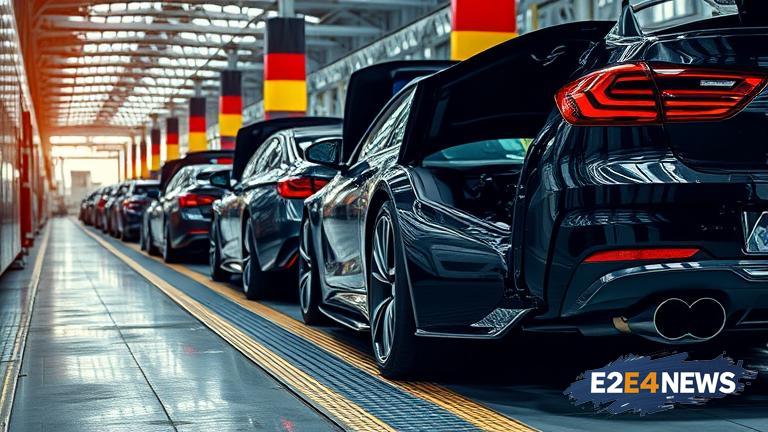The German car industry, once a stalwart of the country’s economy, has been facing significant challenges in recent times. According to recent data, the sector has shed over 51,500 jobs in the past year alone, marking a substantial decline in employment. This downturn can be attributed to the industry’s ongoing shift towards electric and sustainable mobility, which has necessitated significant investments in new technologies and manufacturing processes. As a result, many traditional automotive jobs have become redundant, leading to widespread job losses. The German government has been working to support the industry through this transition, with initiatives aimed at promoting the development of electric vehicles and related infrastructure. However, the pace of change has been rapid, and many workers have been left struggling to adapt. The job losses have been felt across the industry, with both major manufacturers and smaller suppliers affected. The impact has been particularly pronounced in regions with high concentrations of automotive manufacturing, such as Bavaria and Baden-Württemberg. The decline of the traditional internal combustion engine has been a major factor in the job losses, as many workers who were previously employed in the production of these engines have found themselves without work. Furthermore, the rise of electric vehicles has created new demands for skilled workers in areas such as battery production and software development. However, many of the workers who have lost their jobs do not possess the necessary skills to transition into these new roles. The German government has acknowledged the need for significant investment in worker retraining programs, in order to support those who have been displaced by the industry’s shift towards electric mobility. In addition to the job losses, the German car industry has also been facing significant challenges related to supply chain disruptions and regulatory pressures. The ongoing COVID-19 pandemic has further exacerbated these challenges, leading to a decline in demand for new vehicles and a subsequent reduction in production. Despite these challenges, many industry experts remain optimistic about the long-term prospects for the German car industry. The sector is expected to play a major role in the development of sustainable mobility solutions, and many manufacturers are investing heavily in new technologies and manufacturing processes. However, the transition to electric mobility will undoubtedly be a complex and challenging process, requiring significant investment and support from government and industry stakeholders. As the industry continues to evolve, it is likely that we will see further job losses and disruptions, particularly in regions with high concentrations of traditional automotive manufacturing. Nevertheless, the German car industry remains a vital component of the country’s economy, and its successful transition to electric mobility will be crucial for the country’s long-term economic prosperity. The industry’s shift towards sustainable mobility is also expected to have a positive impact on the environment, as electric vehicles produce significantly fewer emissions than traditional internal combustion engines. In conclusion, the German car industry is facing significant challenges as it navigates the transition to electric mobility, with over 51,500 jobs lost in the past year alone. However, with the right support and investment, the sector is expected to emerge stronger and more sustainable, with a major role to play in the development of sustainable mobility solutions.
